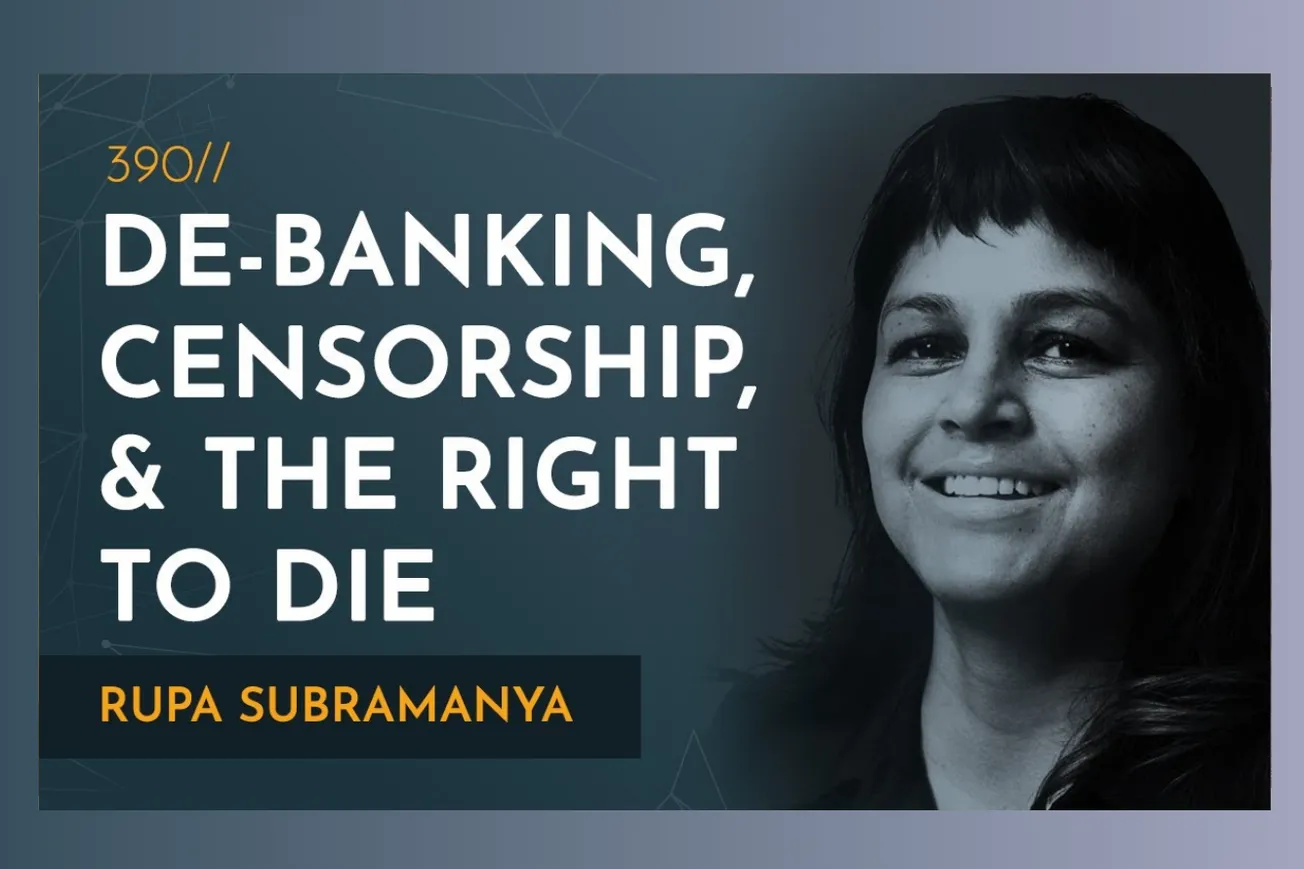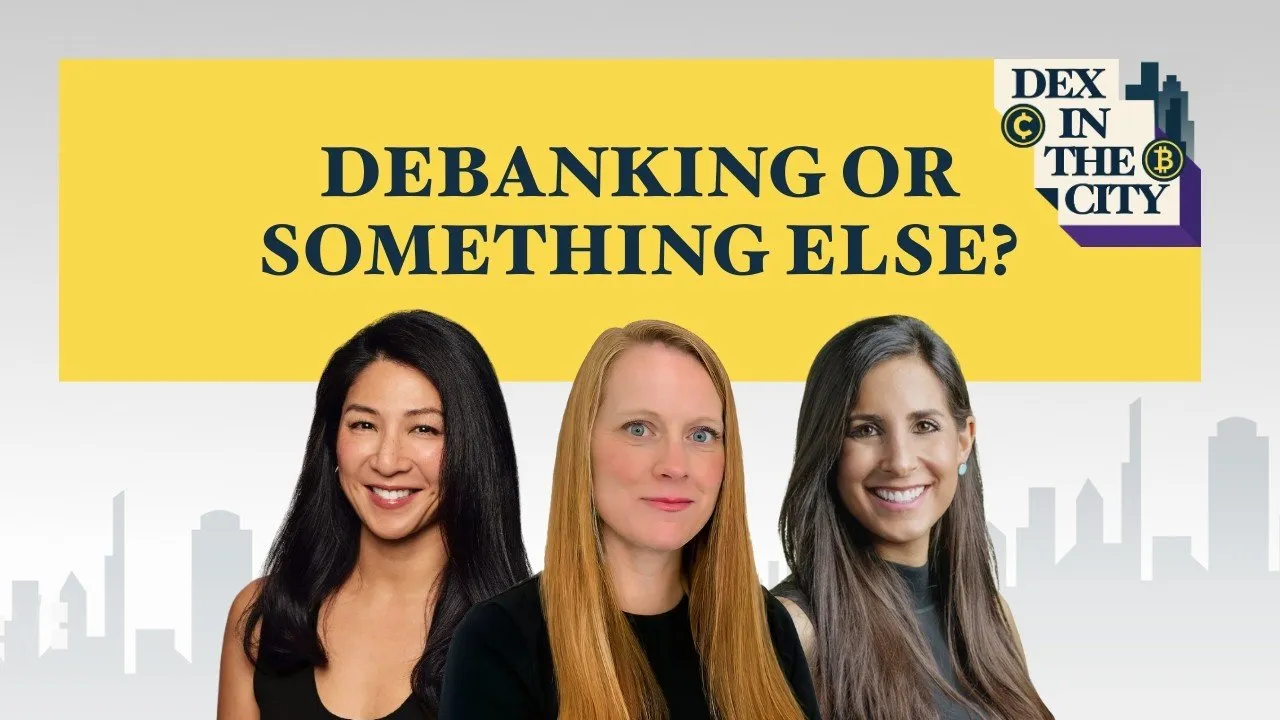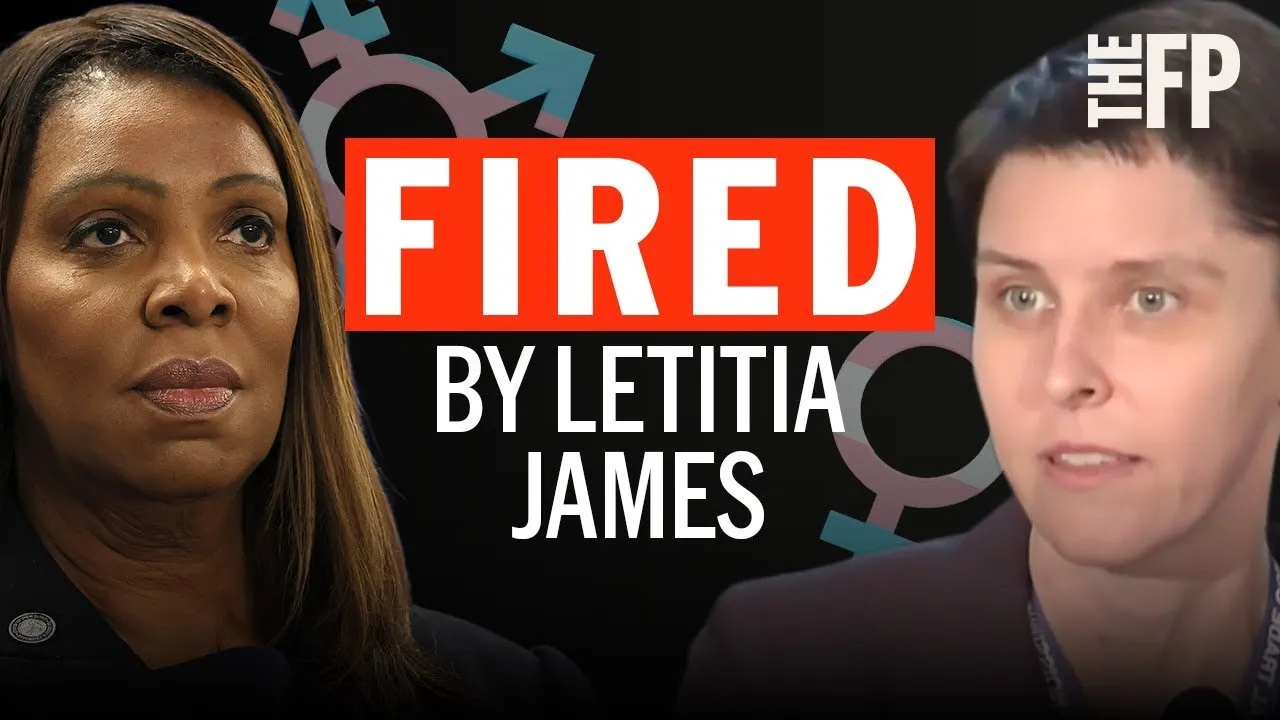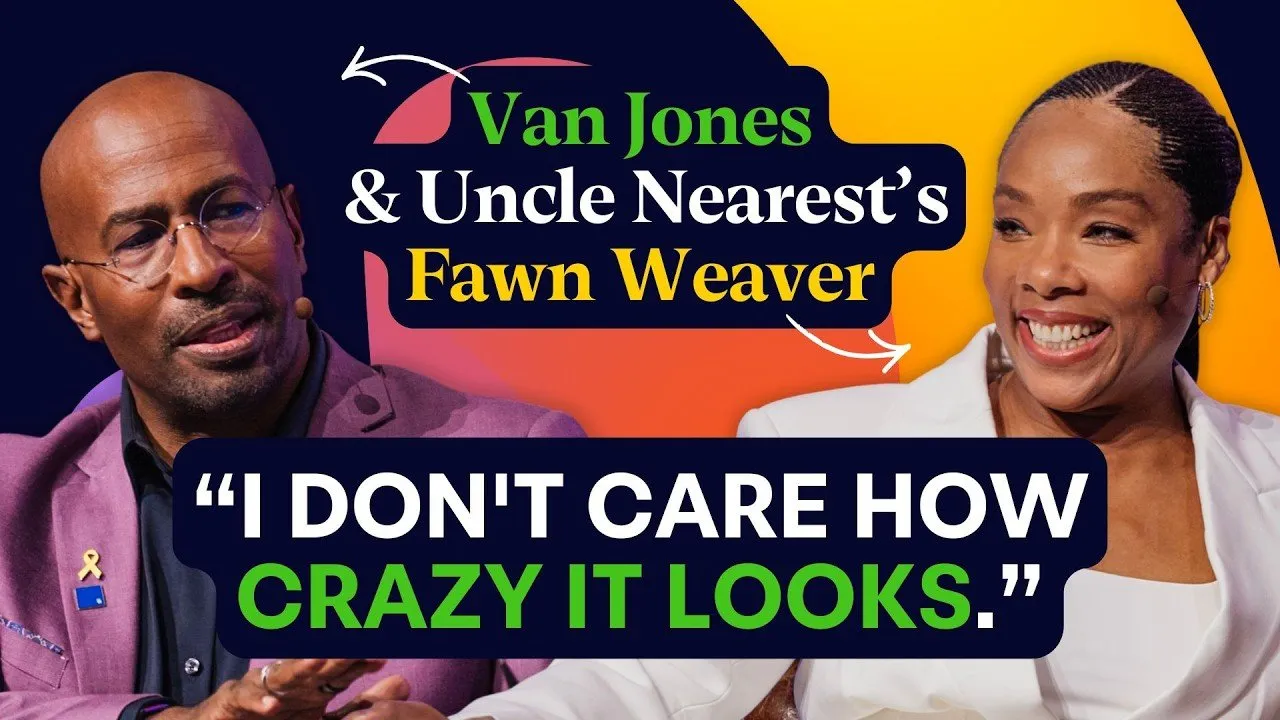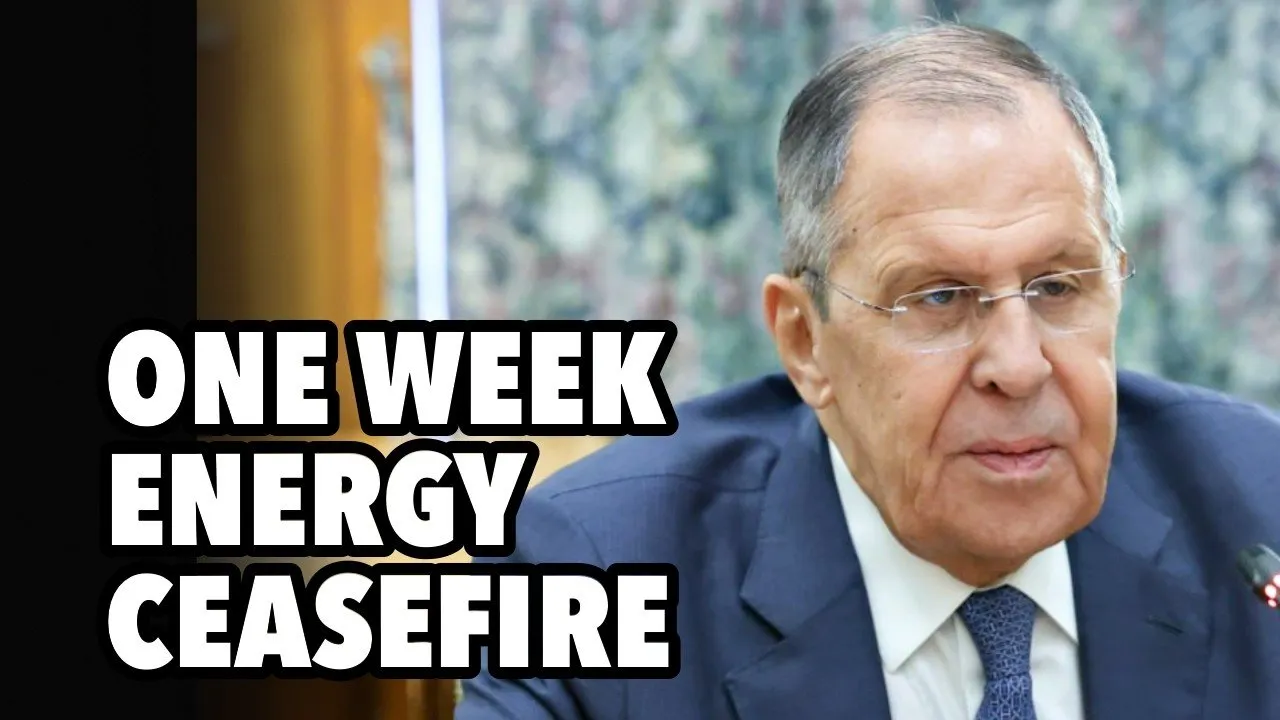Table of Contents
A comprehensive investigation into how banks systematically remove customers from the financial system without explanation, targeting conservatives, activists, and dissidents through opaque processes enabled by post-9/11 legislation.
Journalist Rupa Subramanya exposes the growing phenomenon of financial censorship threatening democratic discourse worldwide.
Key Takeaways
- De-banking affects diverse groups from evangelical pastors to Muslim Americans, operating through secretive processes without customer notification requirements
- The Bank Secrecy Act and Patriot Act create legal frameworks enabling financial institutions to terminate accounts without explanation
- Operation Chokepoint under Obama administration established precedents for targeting ideologically opposed businesses through banking pressure
- Canadian trucker protests demonstrated how emergency powers can freeze citizen bank accounts for political dissent
- Social media platforms amplify cancel culture dynamics, creating reputational risks that banks seek to avoid through preemptive customer removal
- No comprehensive data exists on de-banking prevalence due to regulatory secrecy requirements protecting financial institutions
- Constitutional free speech protections in America remain stronger than other nations, but private sector censorship circumvents these safeguards
- The emergence of algorithmic content moderation creates new forms of censorship that operate at unprecedented scale and opacity
Timeline Overview
- 00:00–18:35 — Background and Journalism Origins: Rupa's transition from economics to journalism, writing for Wall Street Journal and Free Press
- 18:35–35:42 — Canadian Trucker Protests Analysis: Winter 2022 convoy against vaccine mandates, government emergency powers response, and account freezing
- 35:42–52:18 — De-banking Legal Framework: Bank Secrecy Act and Patriot Act enabling account terminations, Operation Chokepoint precedents under Obama
- 52:18–68:45 — Case Studies and Patterns: Launch Good crowdfunding platform, Melania Trump banking, PayPal cancellations, international examples from UK and Germany
- 68:45–85:20 — Reputational Risk Management: Corporate brand protection strategies, Russian Tea Room closure, airline content policies, cancel culture dynamics
- 85:20–END — Free Speech and Platform Power: Constitutional protections debate, social media algorithm design, government agency involvement in content moderation
Financial Weaponization Through Banking Systems
- De-banking represents systematic exclusion from financial services targeting individuals and organizations based on political or ideological positions rather than creditworthiness or legal compliance
- The Bank Secrecy Act of 1970 and post-9/11 Patriot Act create legal frameworks enabling banks to terminate customer relationships without disclosure requirements
- Financial institutions invoke "risk profile" language to justify account closures, effectively creating a parallel justice system operating outside traditional legal protections
- Operation Chokepoint during the Obama administration established precedents for pressuring banks to terminate relationships with politically disfavored but legal businesses
- Banks face regulatory pressure to over-comply with anti-money laundering requirements, creating incentives to preemptively terminate questionable accounts rather than risk penalties
- The secrecy provisions protect banks from having to explain their decisions, leaving affected individuals without recourse or understanding of the process
The architecture of financial surveillance represents a fundamental shift from targeted law enforcement to broad social control. Banks now function as quasi-governmental enforcement mechanisms, wielding the power to economically isolate individuals without judicial oversight. This transformation perverts the original intent of anti-terrorism legislation, creating a system where political dissent becomes grounds for economic exile. The regulatory framework incentivizes institutional cowardice, where banks err on the side of exclusion rather than risk regulatory scrutiny. This creates a chilling effect that extends far beyond those directly affected, as potential dissidents recognize the economic consequences of challenging prevailing orthodoxies.
Canadian Precedent and Emergency Powers Expansion
- The 2022 Freedom Convoy protests in Ottawa demonstrated how emergency legislation can freeze citizen bank accounts for political participation
- Approximately 800 Canadian bank accounts were frozen during the trucker protests, including donors who contributed through crowdfunding platforms
- Justin Trudeau's government invoked the Emergencies Act, previously used only during wartime, to crush what was characterized as peaceful protest
- Canada lacks constitutional free speech protections equivalent to America's First Amendment, enabling more direct government intervention in political expression
- The Charter of Rights and Freedoms proved insufficient protection when the government decided to override peaceful dissent through financial pressure
- Donors who contributed to trucker support through GoFundMe found themselves debanked weeks later as the government obtained and acted on contributor lists
The Canadian response reveals how quickly democratic norms can collapse when governments face sustained political pressure. The decision to freeze bank accounts of protesters and donors represents a threshold crossing that normalizes financial punishment for political participation. The retroactive nature of the enforcement—targeting donors who contributed legally before any emergency declaration—demonstrates how digital transaction records enable governments to punish past legal activities once they decide to change the rules. This precedent establishes that donating to causes that later become politically inconvenient can result in financial punishment, creating a profound chilling effect on civic engagement. The international attention these actions received suggests other governments are studying Canada's playbook for managing domestic dissent through financial coercion.
Pattern Recognition Across Political Spectrum
- De-banking affects evangelical Christians conducting humanitarian work overseas, Muslim Americans, and even high-profile figures like Melania and Barron Trump
- Conservative pastors working in countries like Uganda suddenly find major banks terminating relationships despite years of successful account management
- Launch Good, a crowdfunding platform raising over $600 million for charitable causes, faced repeated de-banking after providing aid to Gaza
- PayPal systematically cancelled accounts of scientists and commentators expressing views contrary to mainstream positions on gender ideology and pandemic policies
- The targeting transcends traditional political boundaries, suggesting algorithmic or systematic approaches rather than individual review processes
- International examples include Nigel Farage's de-banking by Coutts Bank in the UK and the Alternative for Deutschland party's exclusion in Germany
The systematic nature of these exclusions reveals an emerging infrastructure of ideological enforcement that operates across institutional boundaries. The targeting of humanitarian organizations alongside political figures suggests the criteria for exclusion have expanded beyond direct political activity to include any association with contested causes. The repeated de-banking of the same individuals and organizations indicates coordination between financial institutions that extends beyond mere regulatory compliance. The algorithmic nature of some exclusions—particularly affecting Muslim Americans based on name recognition—demonstrates how automated discrimination can operate at scale while maintaining plausible deniability. The international pattern suggests this represents a coordinated response by Western financial institutions to political pressures rather than independent risk assessments.
Reputational Risk and Corporate Self-Censorship
- Banks prioritize brand protection over customer relationships, fearing social media campaigns that could damage corporate reputation through association
- The Russian Tea Room in Ottawa, owned by a Lebanese entrepreneur, closed due to public boycotts despite having no connection to Russian politics
- Airlines now refuse political content on their platforms, citing concerns about viral controversies that could negatively impact their brands
- PayPal's cancellation of evolutionary biologist Colin Wright demonstrates how scientific discourse becomes subject to ideological enforcement through financial pressure
- Social media amplification creates massive reputational risks for businesses, encouraging preemptive action against customers who might generate controversy
- The threat of cancel culture operates as a form of distributed enforcement, with corporations acting to avoid becoming targets themselves
The reputational risk calculus has fundamentally altered corporate behavior, creating a system where businesses police their customers' political activities to avoid social media backlash. This represents a privatization of censorship that operates more efficiently than government control because it harnesses market incentives rather than relying on regulatory enforcement. The speed and scale of social media mobilization means that a single viral campaign can cost corporations millions in lost revenue and damaged brand value, creating overwhelming incentives to err on the side of exclusion. The Russian Tea Room example illustrates how guilt by association has expanded to include even tangential connections to controversial topics. The preemptive nature of much corporate censorship means that the mere possibility of controversy becomes grounds for exclusion, creating a progressively narrowing Overton window of acceptable discourse.
Information Control and Platform Manipulation
- Social media platforms function as modern town squares controlled by private corporations with unprecedented power over public discourse
- Algorithmic design choices, such as limiting post resharing, can dramatically improve discourse quality without targeting specific political viewpoints
- The Joe Rogan-Donald Trump interview's search visibility issues demonstrate how platform controls can influence information access in politically sensitive moments
- Facebook discovered that reducing reshare limits was the most effective method for combating misinformation, yet platforms resist implementing such universal solutions
- Network externalities create natural monopolies in social media, where users congregate on platforms because others are already there
- Government agencies maintaining offices within private social media companies represents a concerning merger of state and corporate censorship capabilities
The concentration of information control in the hands of a few tech giants represents an unprecedented threat to democratic discourse that dwarfs historical concerns about media monopolies. Unlike traditional media, social platforms don't just broadcast information—they actively shape how users think by controlling what information they see and how they interact with it. The algorithmic curation of reality means that platform operators effectively control the inputs to democratic decision-making, determining which ideas gain traction and which disappear into obscurity. The resistance to implementing universal design improvements that reduce harmful content suggests that engagement-maximizing algorithms are prioritized over democratic discourse quality. The presence of government officials within platform content moderation teams creates a direct channel for state influence over private speech that operates outside constitutional constraints while maintaining plausible deniability about government censorship.
Constitutional Frameworks and International Comparisons
- America's First Amendment provides stronger constitutional speech protections than most democratic nations, including neighboring Canada
- European restrictions on Nazi-related speech reflect specific historical experiences with occupation and genocide, creating understandable but limited exceptions
- Canada's proposed legislation criminalizing genocide denial regarding indigenous children demonstrates how new speech restrictions emerge around contemporary political issues
- The distinction between government-protected speech rights and private platform policies creates confusion about what constitutes actual censorship versus editorial decisions
- International trends toward expanding hate speech laws and digital regulation threaten to erode traditional liberal democratic discourse norms
- The challenge lies in distinguishing between legitimate content moderation and politically motivated censorship when platforms operate at global scale
The erosion of speech protections internationally creates pressure on American institutions to conform to more restrictive global norms, particularly as platforms operate across jurisdictions with varying legal requirements. The expansion of hate speech laws beyond historically specific categories like Holocaust denial to include contemporary political disputes represents a dangerous precedent that could criminalize legitimate political disagreement. The blurring of lines between private platform policies and government censorship enables end-runs around constitutional protections while maintaining the fiction of private choice. The global reach of American tech platforms means that restrictions imposed to comply with foreign laws effectively export censorship to American users. The challenge of maintaining democratic discourse in an era of platform-mediated communication requires new legal frameworks that can distinguish between legitimate editorial decisions and politically motivated suppression while preserving the benefits of technological innovation.
Common Questions
Q: What legal protections exist against de-banking?
A: Very few. The Bank Secrecy Act actually protects banks from disclosure requirements, leaving customers without recourse or explanation.
Q: How widespread is the de-banking phenomenon?
A: Unknown. No comprehensive data exists due to regulatory secrecy provisions that protect financial institutions from disclosure obligations.
Q: Can de-banked individuals appeal these decisions?
A: Banks are not required to provide explanations or appeal processes, making it nearly impossible to challenge these decisions effectively.
Q: What's the difference between free speech and platform policies?
A: Free speech traditionally refers to government restrictions, while platforms are private entities that can set their own content rules.
Q: How do other countries handle similar issues?
A: Most lack America's constitutional speech protections, making government intervention in discourse more direct and extensive than in the United States.
The de-banking phenomenon represents a dangerous evolution in how dissent can be suppressed without traditional legal processes. Post-9/11 legislation intended to combat terrorism has been repurposed into tools for ideological enforcement, while social media amplification creates reputational risks that encourage preemptive corporate censorship. The intersection of financial systems, government regulation, and digital platforms creates new forms of control that operate outside constitutional protections, threatening the foundational principle that political participation should not determine access to basic services. As democratic societies grapple with technological disruption and increasing polarization, the weaponization of financial infrastructure represents a critical threat to pluralistic discourse and individual liberty that transcends traditional political boundaries.
Practical Implications
- Diversify banking relationships across multiple institutions to reduce single points of failure
- Document all banking interactions and maintain records of account closures for potential legal action
- Support legislation requiring disclosure of de-banking reasons and appeal processes for affected customers
- Advocate for transparency in government agency relationships with private financial institutions and social media platforms
- Consider alternative financial systems including credit unions, community banks, and emerging cryptocurrency solutions
- Establish clear policies separating political activities from business accounts to minimize institutional risk
- Monitor international precedents for financial censorship to anticipate domestic policy developments
- Support organizations working to document and publicize de-banking cases to build public awareness
- Engage with representatives to strengthen constitutional protections against financial discrimination
- Develop backup communication and fundraising channels independent of major tech platforms

